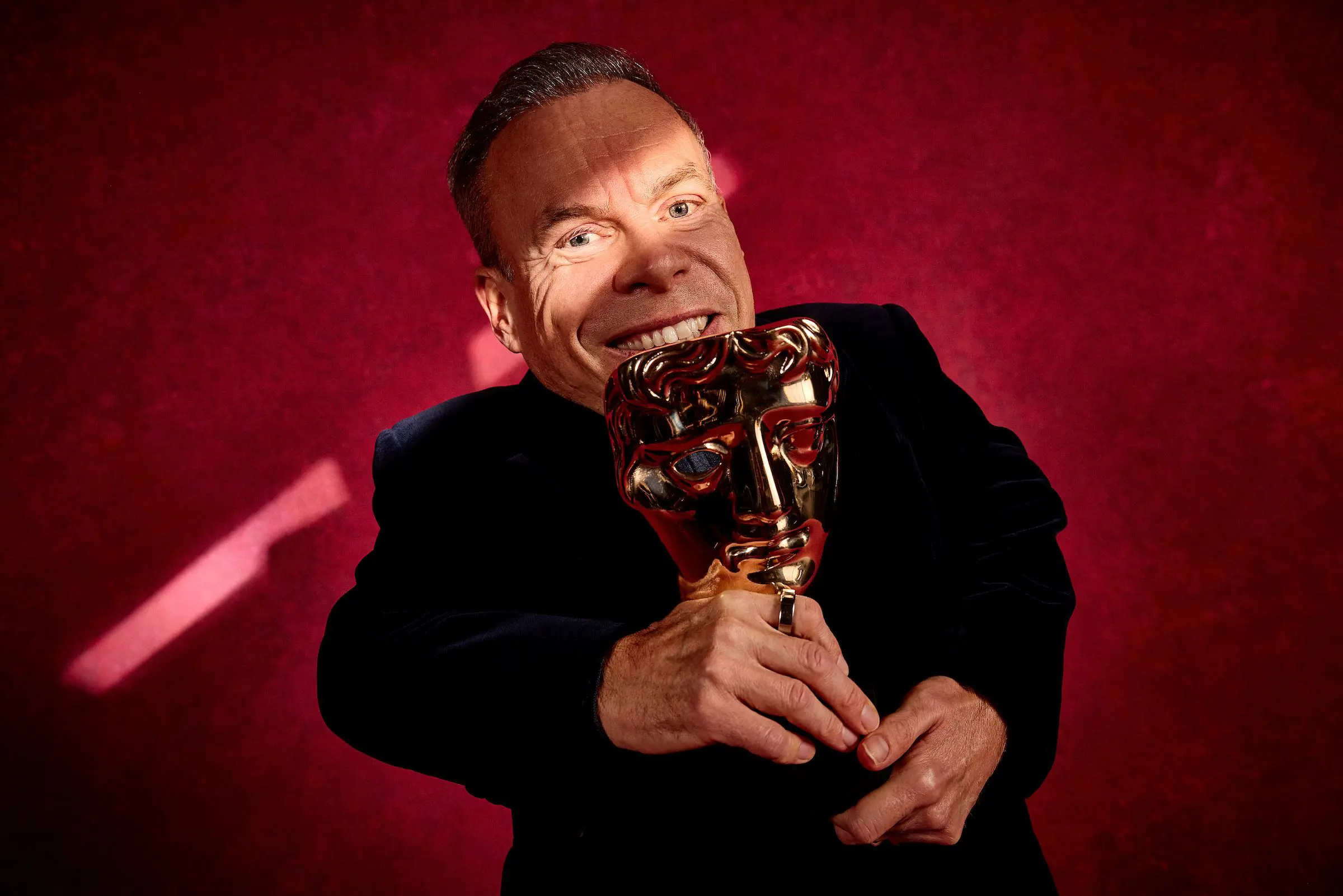The following interview appeared in the EE BAFTA Film Awards official 2025 Show Notes.
The year was 1977 and seven-year-old Warwick Davis was hoping to buy his first cinema ticket, to see a film called Star Wars.
A huge queue snaked around the venue, the Sutton Cinema in Surrey. After the film, as his mother did her make up, Davis sat on the end of her bed and recited the entire plot of A New Hope, “which actually took longer than the film’s two-hour running time,” says the actor. “I told her about Luke Skywalker, and how the lightsabers were so cool, and all the creatures,” he remembers. “Just talking about it now, I could be seven again.”
Just a few years later, Davis was cast as an Ewok in Star Wars: Return of the Jedi, the third instalment of George Lucas’ sci-fi fantasy phenomenon. It was the start of a prolific career. The British actor, comedian, presenter, producer and accessibility advocate, who was born with a rare form of dwarfism called
spondyloepiphyseal dysplasia congenita, has starred in some of cinema’s biggest and most beloved franchises. Now, he is the recipient of this year’s BAFTA Fellowship.
Davis remembers meeting his on-screen heroes on the set of Return of the Jedi as “a naive 11-year-old.” In his view, Harrison Ford, Mark Hamill and Carrie Fisher were Han Solo, Luke Skywalker and Princess Leia. “I didn’t understand that you couldn’t just wander up to the big stars and have a chat between takes,” he says. Not that this stopped him from approaching the other actors with curiosity and confidence. Davis credits his parents for encouraging him to make his own way in the world. “Even though I was very short” – 2’ 11” he says – “I had a big personality.”
Davis wasn’t a professional actor, but on Jedi he “instinctively became the character.” As the adorable, furry creature Wicket, he drew from his pet dog Brandy, a floppy-eared Cavalier King Charles. “My dog would tilt his head from side to side, because he was trying to understand what he was hearing. I remember thinking, that is so endearing,” he says. He started cocking his head to one side as Wicket. “I wish I could still do that now, as an actor,” he says. “As you get older, you become more conscious of what you’re doing.”
It was George Lucas who first recognised that actor’s instinct in Davis. In 1987, he cast the then-teenager as a pure-hearted sorcerer named Willow. Directed by Ron Howard, the film was the first time Davis had the opportunity to perform without hiding behind a mask. “It was totally different,” says Davis.









